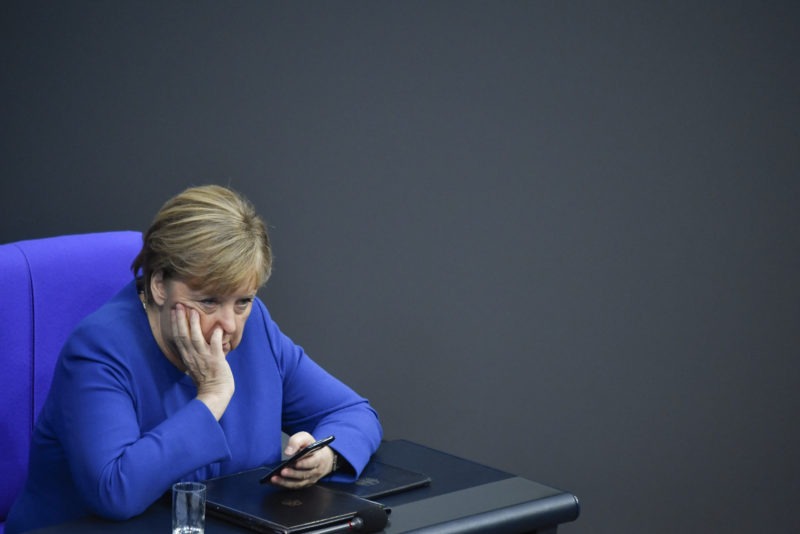EU leaders to face off in ‘very tough’ budget summit
German Chancellor Angela Merkel sees “very tough” talks over the longterm budget (John MACDOUGALL)
Brussels (AFP) – EU leaders are to hold a Brussels summit Thursday to set a seven-year budget despite splits between some stingy rich nations, poorer ones wanting to preserve spending and others wanting to fund grand global ambitions.
The money tussle, hard-fought at the best of times, is especially problematic this time around because of Britain’s departure from the EU. The “Brexit gap” caused by the loss of the UK’s contribution is 75 billion euros ($81 billion) over the 2021-2027 period.
German Chancellor Angela Merkel on the eve of the summit predicted “very tough and difficult negotiations” around the table.
The talks are expected to be so strained that some of the 27 EU delegations are preparing for the summit to drag out into the weekend.
A few EU sources, however, suggested differences over the budget are so great the summit could end quickly and the can kicked down the road to another summit — or two — in the coming months.
An analyst at the European Policy Centre, Marta Pilati, agreed, saying: “There likely won’t be agreement at this summit. All the member states aren’t showing much willingness to compromise.”
The minimum spending in the multi-annual financial framework (MFF), as the long-term budget is called, is just over one trillion euros.
– Varied goals –
The discord is over how much above that amount this budget should be, how spending might be shifted between priorities and how much each member state should pay as a percentage of its gross domestic product (GDP).
Another touchy issue is whether budget rebates pocketed by a few wealthier countries should still exist.
The last MFF came in at 1.08 trillion euros (in 2018 prices).
A “frugal four” group of nations — Austria, Denmark, the Netherlands and Sweden — wants to rein in the budget and make up only some of the ground of the Brexit gap.
They also want to keep their rebates, as does Germany.
At the high end of spending demands is the European Parliament, which wants the MFF expanded to 1.32 trillion euros to pay for costly goals such as turning the European Union into a carbon-neutral economy within three decades.
The legislature, which has to sign off on the final MFF, believes more money can be raised from EU-wide taxes on plastics and on the carbon emissions trading scheme.
A “friends of cohesion” group of mostly eastern and southern EU nations wants to ringfence money it gets to help bring infrastructure and society up to the level of wealthier counterparts.
Agriculturally sensitive countries such as France, Spain and Poland are also looking to preserve farmers’ subsidies. France would like to also see extra money for common security and defence and the “unfair” rebates scrapped.
The European Commission, which aims for a “geopolitical” mantle under President Ursula von der Leyen, is trying for a target of 1.13 trillion euros.
– Looking for a deal –
The president of the European Council, Charles Michel, who calls and coordinates summits, believes he can at least narrow positions.
His MFF proposal is 1.09 trillion euros and makes cuts to cohesion funds and farm subsidies to finance other priority areas.
A senior EU official said Michel’s plan would re-allocate “about eight billion euros from richer to poorer member states”.
His plan, though, has little support.
The European Parliament has rejected it as too little. Germany says it is a “step backwards” and Spain has criticised it for “not recognising the role of agriculture” in EU cohesion.
But the senior EU official said Michel believes the splits will not change over the coming months and he “is very determined to clinch a deal in the coming days.”
Disclaimer: Validity of the above story is for 7 Days from original date of publishing. Source: AFP.


